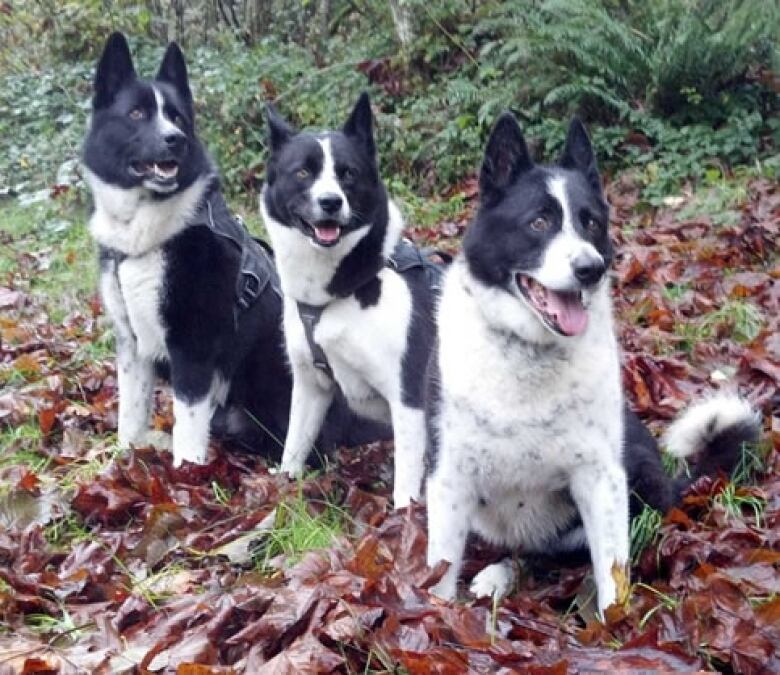Coquitlam bear lover demands officers use bear dogs instead of bullets and thousands agree
'They go right into the face of a snarling bear or cougar ... they just bully the heck out of that animal'

A Coquitlam bear lover is petitioning the B.C. Conservation Service to use bear dogs instead of bullets to repel garbage bears.
Alex Marinets was inspired to launch the petition that already has 2,300 supporters after learning that a sow she often saw with cubs in Mundy Park had been shot in late July.
"When I saw it, I literally cried. This mama bear lived in Mundy Park for years. Even our dogs ignored her. She was a good bear," said Marinets.
"It's just not humane the way it's being done in Coquitlam or Port Moody right now."
She's advocating for a non-lethal tool, that's proven effective at deterring garbage bears and education humans.

Marinets says she learned Washington state wildlife officials use specially trained-and-bred Karelian bear dogs to scare off habituated suburban bears, and it works. So she's urging provincial wildlife officials in B.C. to do the same after more than 300 bears have had to be destroyed in the province since April.
Capt. Alan Myers of the Department of Fish and Wildlife in Washington state is in charge of the bear dog program, He says he inherited the successful initiative that all started with one Finland-bred $4,000 dog more than a decade ago.
"It has zero fear of large predators. No fear," said Myers.

The medium-sized bear dogs look like black and white huskies, and Myers says they are affectionately nick-named "land pandas."
But they are high-strung and not lap dogs.
"And they are very agile, so when they are barking and yapping at a bear they are dancing around so they make sure they can stay out of reach of the animal that is taking swats at it," he said.
"They go right into the face of a snarling bear or cougar that's twice their size and they just bully the heck out of that animal," he said.
That may seem violent, but he says it saves bears' lives.

Since then, the wildlife service has found using the Karelian bear dogs, first bred in Russia to hunt bears, actually saves bear lives and helps educate people, saving even more bears.
Bear dogs scare bears away
Myers said that the four bear dogs are used to "harass and bark at and essentially terrorize" the bear once it's trapped, creating a traumatic experience that scares it away from the area.
As a bear is released from a culvert trap the officers shoot bean bags at the bear and release the dogs to chase it.
"So it gets that extra little kick of go away and never come back," he said.
Myers says it's 80 per cent effective, which is much better than the old trap-and-relocate methods that often ended with the bear either returning or being killed because it tried to relocate in another animals territory.
Many of those bears eventually had to be destroyed.
As an added bonus, Myers says the dogs are the "rockstars" of their education program and help teach people not to create garbage hazards.
Provincial officials were not available for comment Thursday. It's not clear whether they've ever considered bear dogs which are also used as a tool in Alaska.


